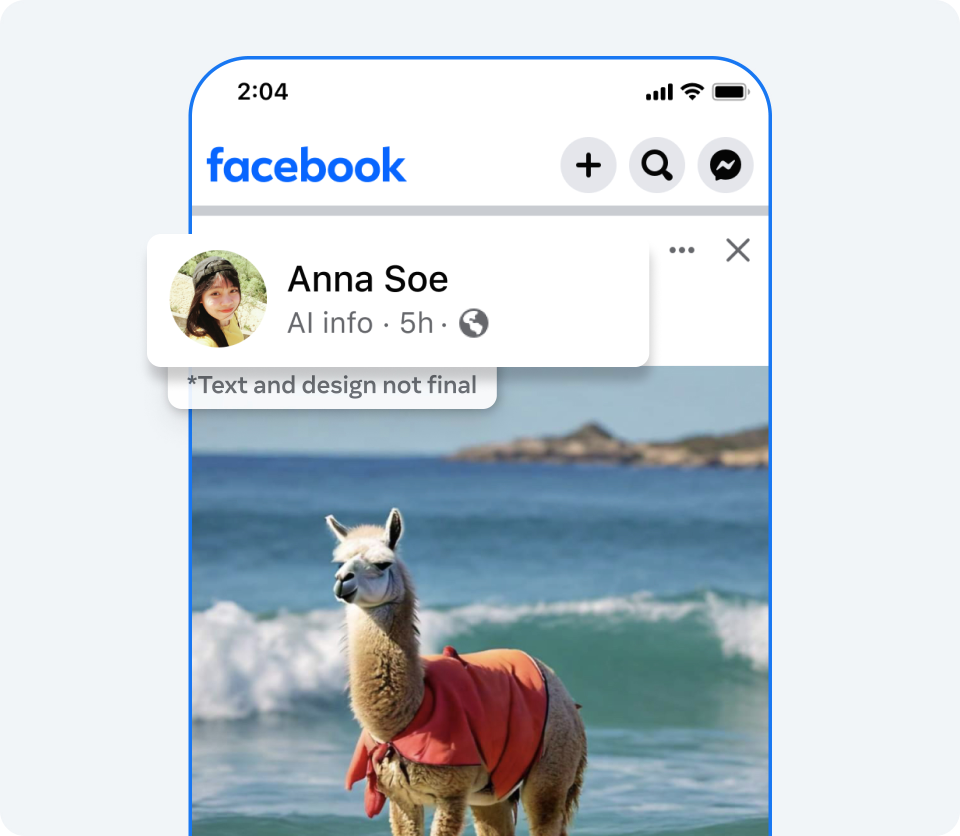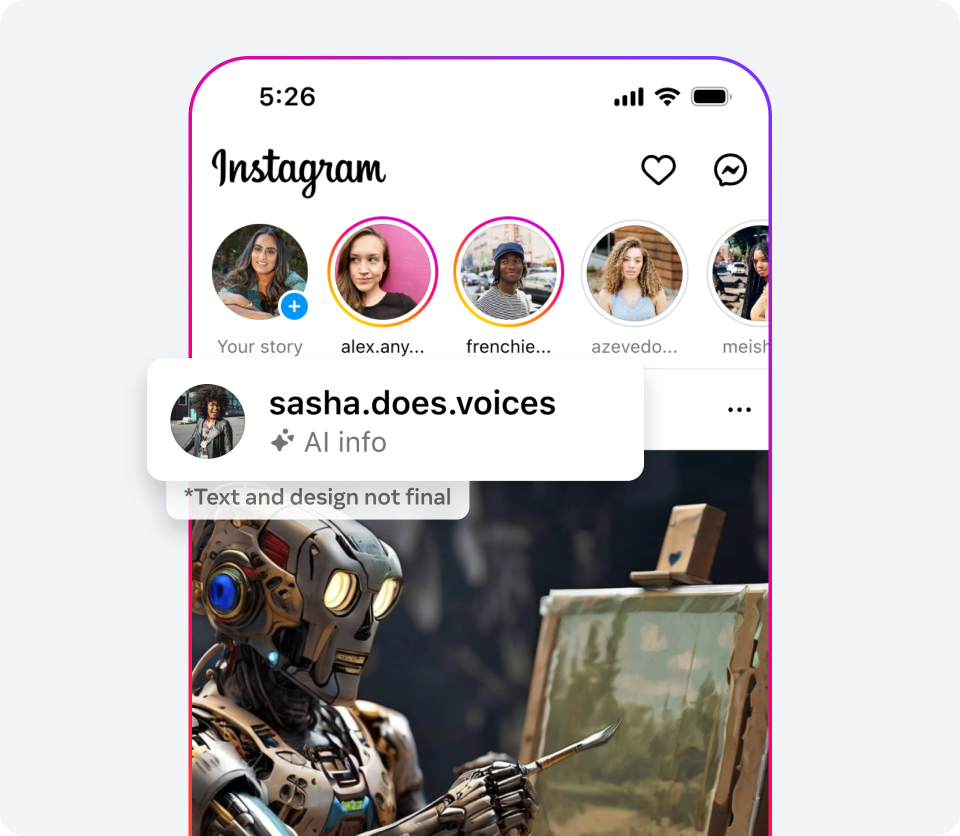Meta, the parent company of Facebook, Instagram, and Threads, has announced a significant step towards transparency: labeling AI-generated images on its platforms. This initiative aims to address growing concerns about the authenticity and potential misuse of deepfakes and other synthetic content.
Key Points:
Labeling System: Images created with AI tools, including those beyond Meta’s own, will be marked with “Imagined with AI” labels. This builds upon Meta’s existing practice for its internal AI-generated content.
Industry Collaboration: Meta is working with industry partners through the Partnership on AI (PAI) to establish common standards for identifying AI-generated content. This includes leveraging IPTC metadata and invisible watermarks.
Technological Advancements: Meta is developing tools to detect invisible markers at scale, enabling labeling across various platforms. Additionally, they are exploring advanced watermarking technologies for enhanced detection of AI-generated audio and video.
Transparency and Community: Meta acknowledges the challenges of identifying AI-generated audio and video content. They plan to introduce features allowing users to disclose such content and emphasize ongoing dialogue with stakeholders to improve detection and community standards.
Availability: The labeling system for AI-generated images will be rolled out across Facebook, Instagram, and Threads in the coming months.


Benefits:
Increased Transparency: Users can readily identify AI-generated content, making informed decisions about their interactions and information consumption.
Combating Misinformation: Labels can help prevent the spread of deepfakes and other manipulated content, promoting trust and authenticity on social media platforms.
Responsible AI Development: Setting standards and fostering collaboration encourages responsible development and use of AI technology.
Challenges and Future Considerations:
Accuracy and Scope: Continuously improving the accuracy of detection tools and expanding labeling to encompass various AI-generated content formats will be crucial.
User Education: Educating users about AI-generated content, its potential implications, and responsible engagement with such content remains essential.
Evolving Landscape: As AI technology advances, adapting detection methods and community standards to keep pace will be an ongoing challenge.
Meta’s initiative marks a positive step towards transparency and responsible use of AI in social media. By acknowledging the challenges and fostering collaboration, Meta can contribute to a more informed and responsible online environment for all users.






